Prequels are a potent tool for storytelling, giving us the ability to see characters we already believed we knew and turn our ideas about them upside down. While sequels tend to try to pick up where a story left off, prequels explore the emotional history, the motivations, and the wounds that define legendary characters. These stories don't simply fill gaps, they force us to look at villains as victims, heroes as humans, and side characters as so much richer than we previously thought. Whether it's the subtle corruption of a future Sith Lord or the surprising depth of a fashion tyrant or master lawyer, prequels beg us to be empathetic and to question deeper.
Over the past few years, showrunners and filmmakers have gravitated toward this format heavily, creating rich character studies that often even surpass the originals. They cloud the issue of right and wrong, shading characters gray rather than black and white. This list explores ten standout prequels that completely transformed our perception of key characters, some redeemed, some ruined, but all undeniably redefined. You’ll never look at these icons the same way again.
1. Coriolanus Snow – The Ballad of Songbirds & Snakes
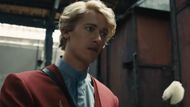
Before he transformed into the heartless President Snow of Panem, Coriolanus was simply a young adult struggling to endure a decaying Capitol. The Ballad of Songbirds & Snakes (2023) strips away layers of this devious villain to reveal his youthfulness, frailty, and ambition. Working as a mentor in the 10th Hunger Games, Snow's fall towards manipulation, wickedness, and moral compromise comes gradually but hauntingly. The prequel doesn't simply provide background, it alters our understanding of how ideals can rot into tyranny. By the time the film concludes, the metamorphosis seems tragic and also unsettling, turning a one-dimensional despot into an uncomfortably plausible symbol of compromised power.
2. Saul Goodman – Better Call Saul
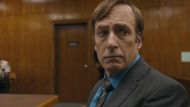
The original comedy relief of Breaking Bad, Saul Goodman, was flash and sleaze until Better Call Saul stripped away the layers. The prequel introduced us to Jimmy McGill, a decent but down-on-his-luck lawyer haunted by insecurity and ethical compromise. Bob Odenkirk's performance, particularly in the series finale, dispelled the "comedy foil" illusion. We learn how ambition, heartbreak, and guilt distorted him into Saul. His sad relationship with Kim Wexler provides emotional heft never experienced in Breaking Bad. The show did not simply redefine how we see Saul, it had us lamenting a man who might have been better off in another universe.
3. Cruella de Vil – Cruella
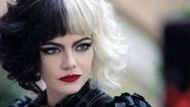
In Disney's 101 Dalmatians, Cruella was a style-mad madwoman who wished to skin puppies. But 2021's Cruella gave her a plush, outlawed backstory that combined punk rock edge with a revenge thriller. Emma Stone reinterpreted the villain as Estella, a supremely talented designer betrayed by a ruthless fashion empire and traumatized by tragedy. The movie toys with identity, suggesting that Cruella is an act of response to trauma and injustice. With a sequel on the horizon, rumors abound about even more profound character turns. What was once cartoon bad now seems like a complicated odyssey of survival, style, and self-fashioning.
4. Mike Ehrmantraut – Better Call Saul
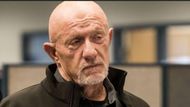
Mike was always the calm, cool fixer on Breaking Bad, but Better Call Saul infused him with soul. We see a mourning grandfather, ex-cop, and unwilling criminal struggling to take care of his family. Jonathan Banks instills an emotional weight that makes every quiet scene count. Mike's history, particularly the death of his son and his gradual descent into Gus Fring's orbit, redefine his stoicism as pain buried deep. The series finale of Breaking Bad further expands his philosophical worldview concerning morality, which makes his eventual demise in the show seem both inevitable and tragic. He's not a hired gun.
5. Darth Vader – Obi-Wan Kenobi

Although Anakin's demise was mapped in the prequels, Obi-Wan Kenobi revealed Darth Vader to us at his strongest bodily and mentally. Obi-Wan's battle with Vader in the series is devastating, particularly when Anakin's voice pierces the broken helmet. It's no longer the transformation of a villain; it's a breakdown of spirit. The second that he says to Obi-Wan, "I am not your failure," carries emotional heft and releases his former master from shame but underscores Anakin's utter fall to the darkness. It isn't just a black-villain trope; it's a ghost who refuses to let go of suffering. The series scared us of Vader again, but also made us pity him.
6. Norma Bates – Bates Motel
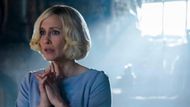
In Psycho, Norma Bates is a ghostly recollection, a deceased woman driving her son mad. But Bates Motel made her live, thanks to Vera Farmiga's unsettling, nuanced performance. She's a fiercely loving mother grappling with trauma and denial, unwittingly weaving her son's breakdown. As Norman's sanity dissolves, their co-dependent relationship dissolves into something repellent. The series does not absolve her but requests sympathy; she's a survivor in a harsh world, frantically attempting to keep her family intact. Norma is not a whisper inside Norman's ear anymore. She's a sympathetic matriarch, victim as well as abettor, rewriting Psycho's entire history.
7. Professor Snape –Harry Potter Series
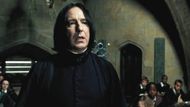
Severus Snape had always been the bitter, chilly Voldemort of Hogwarts. But The Half-Blood Prince and Deathly Hallows transformed him into one of the saga's saddest heroes. His long love for Lily Potter and his dual role as double agent shed everything differently. Every brutal action became another layer of cover camouflage. Alan Rickman, who knew Snape's secret finale from the beginning, acted every line with hidden emotion only realized later. Even in 2024's Hogwarts Legacy fan mods and lore expansions, Snape's figure has softened, revered. He wasn't evil. He was a guardian in the shadows.
8. Furiosa – Furiosa: A Mad Max Saga
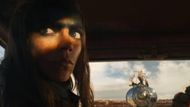
While Mad Max: Fury Road has made Furiosa an iconic character in herself, the upcoming prequel Furiosa: A Mad Max Saga (2024) is set to provide further exploration of her mythos. Anya Taylor-Joy will follow in the footsteps of Charlize Theron and show us the transformation from kidnapped girl of the Green Place to hardened warrior who would go on to oppose Immortan Joe. George Miller-directed, and with early reactions from test screenings suggesting it to be a gritty, character-driven epic about resilience, identity, and moral awakening, set against the backdrop of a post-apocalyptic world.
9. Gellert Grindelwald – Fantastic Beasts Series
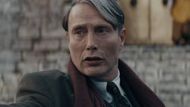
Where once he was a generic villain in Harry Potter, Grindelwald emerged as an ideological and charismatic force in Fantastic Beasts. His history with Dumbledore provided emotional resonance, particularly in The Secrets of Dumbledore, where their past love informs every choice. Mads Mikkelsen's portrayal provided the character with a subtle menace, less showy than Johnny Depp's extravagance. Grindelwald isn't dark for its own sake believes in his vision for wizarding superiority with chilling conviction. The prequels reinvented him as a cautionary tale of charm gone wrong, forcing us to rethink how we measure power and love. He's not villainous. He's a corruption of hope.
10. Nurse Ratched – Ratched
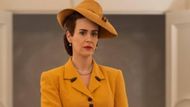
One Flew Over the Cuckoo's Nest Nurse Ratched was once cinema's clinical evil. Netflix's Ratched rebooted her as a woman forged through trauma, wartime experience, and secrets buried deep. Sarah Paulson is still manipulative, yet vulnerable, intelligent, and curiously sympathetic. Her motives are complex, her cruelty is frequently a protection mechanism. While the series goes over the top with campy horror, it also strips away the emotional veneer, making a flat villain a tragic antiheroine. Ratched is no longer merely a manipulative nurse bent on power. She's a product of a savage system, raising new questions about madness, mercy, and authority.
Love movies? Try our Box Office Game and Movie Grid Game to test your film knowledge and have some fun!

